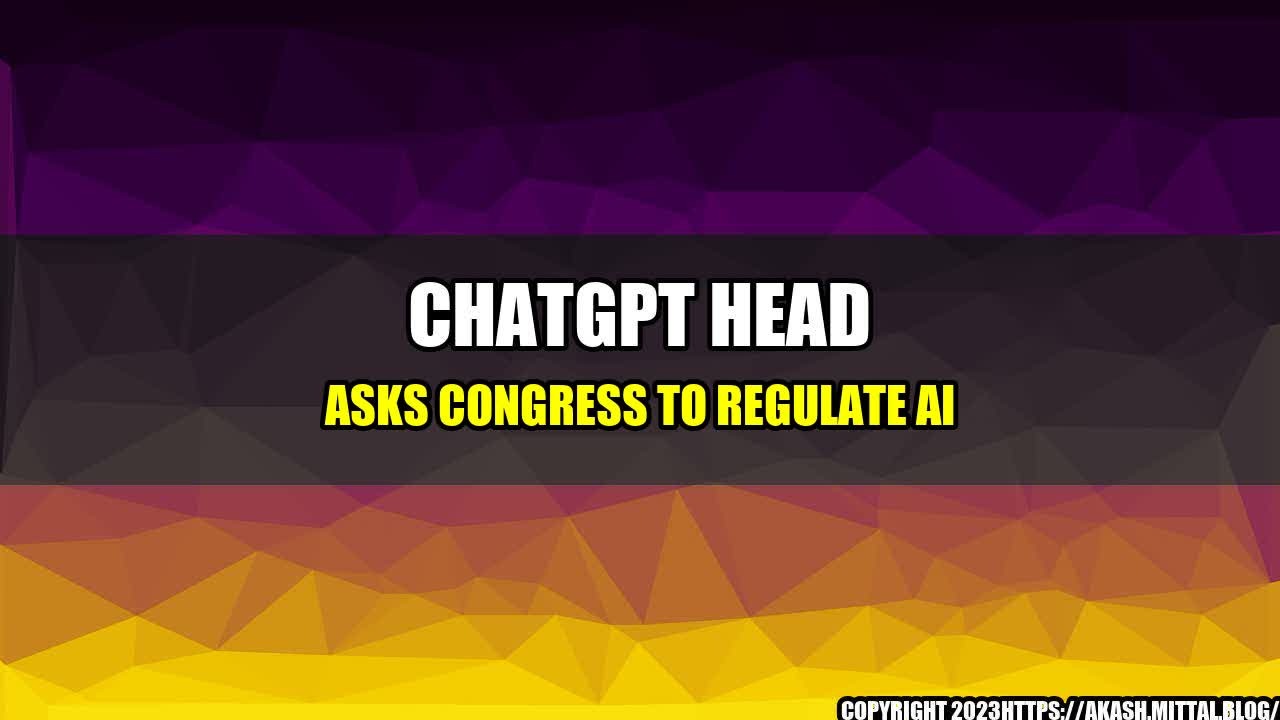ChatGPT Head Asks Congress to Regulate AI

Why AI needs regulation

Why AI needs regulation
It was a dark and stormy night when ChatGPT's head of operations received a call from a worried customer. The customer had been using ChatGPT's artificial intelligence (AI) chatbot to help with a complex project, when suddenly the chatbot gave a highly inappropriate response, causing the customer to lose all faith.
This incident may seem like a one-off, but as AI becomes increasingly common in our daily lives, it is clear that regulation is needed to ensure that AI is developed and used ethically.
AI is a rapidly developing technology that has the potential to transform every aspect of our lives. From autonomous vehicles to medical diagnosis, AI has the potential to make our lives easier, safer, and healthier. However, as with any new technology, there are risks.
One of the biggest risks is that AI can be biased. Machine learning algorithms are only as good as the data they are trained on, and if that data is biased, then the AI will be biased too. For example, Amazon had to scrap an AI recruitment tool because it was biased against women.
Another risk is that AI can be used for unethical purposes. For example, AI could be used to create highly realistic fake videos or images to spread disinformation. AI could also be used to target vulnerable people with scams or propaganda.
There are many examples of AI gone wrong. Here are just a few:
AI is a powerful technology that has the potential to change our lives in ways that we cannot even imagine. However, with that power comes responsibility. We need to ensure that AI is developed and used in an ethical manner that protects people's rights and promotes the common good.
Regulation is necessary for several reasons:
As someone who has worked with AI for many years, I have seen firsthand the incredible potential of this technology. However, I have also seen the risks. I have seen AI systems that are biased and AI systems that are used for unethical purposes. I believe that regulation is necessary to ensure that AI is used for the benefit of humanity and not the other way around.
One example that stands out to me is the use of AI in the criminal justice system. AI is already being used to predict whether someone is likely to reoffend, and this information is being used to make decisions about parole and probation. However, there are concerns that these systems are biased against certain groups of people, such as African Americans. This is a clear example of why regulation is needed to ensure that AI is used fairly and justly.
AI is a powerful technology that has the potential to transform our lives for the better. However, without regulation, the risks of AI cannot be ignored. AI has the potential to be biased, unethical, and dangerous if not used responsibly.
Regulation is needed to ensure that AI is developed and used ethically and for the benefit of humanity. Clear guidelines and standards must be put in place to promote safety, social justice, and protect people's rights.
Regulation is necessary for AI to:
Curated by Team Akash.Mittal.Blog
Share on Twitter Share on LinkedIn